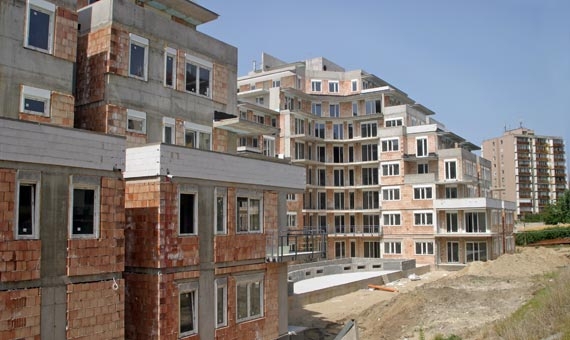The 19-point drop of the value of the index in nine months has been unprecedented. During the ten-year history of the survey, today's strong pessimism was matched only once, in July 2002. The outlooks have grown worse on all market sectors included in the survey, obviously not at the same rate.
GKI Economic Research has been conducting quarterly surveys since spring 2000 in order to assess the plans, intentions and prospects of businesses, real estate developers, realtors and households on the real estate market. Since the beginning, the research project has been supported by the trade magazine Ingatlan és Befektetés (Real Estate and Investment). GKI’s Budapest Real Estate Market Index synthesizes the foreseeable situation of individual market segments (residential, office and retail space and warehouse markets), providing an overall picture.
In April 2009, the value of GKI’s Budapest Real Estate Market Index was –29. The index, still reflecting relatively optimistic expectations in July 2008, has been dropping steadily and significantly ever since. The 19-point drop of the value of the index in nine months has been unprecedented. During the ten-year history of the survey, today's strong pessimism was matched only once, in July 2002. The outlooks have grown worse on all market sectors included in the survey, obviously not at the same rate. Concerning the office space market, 2008 was a record year in terms of both added new capacities and the volume of leased floor area.
However, during the fourth quarter of last year and so far in 2009, demand for office space has steadily declined. According to the findings of GKI’s survey, Budapest occupancy indicators have deteriorated in nearly all market segments since mid-2008. The attraction of lower rents has probably been one of the reasons of the good performance of the Pest ‘B’ category during the recent period. For the forthcoming twelve-month period, real estate businesses expect the current strong oversupply to persist in most regions, with
the exception of Western Hungary, where it is expected to grow worse. New office developments will probably come to a halt in 2009.
For a long time, the commercial property market has been characterised by increasing concentration of operators Since January 2008, there has been increasing oversupply in this market sector. Real-estate businesses expect the oversupply to increase in Budapest during the next 12 months, whereas in provincial regions the current significant surplus will probably be preserved during the same period. Representatives of the business sector expect the decline of demand for retail space.
Concerning warehouse market 2008 was a record year on the Hungarian logistics property market both in terms of development and the volume of leased floor area.
However, the vacancy rate was very high at the end of 2008. The real-estate businesses have reported a certain decline of the market on national average. With the exception of East Hungary, the respondents do not expect any significant change in the current situation during the forthcoming twelve months. Representatives of the business sector, however, have forecasted the decline of demand for logistics property. Concerning residential market the data of GKI’s real-estate market surveys in October and January indicated a very significant decline in the perception of the Budapest housing market.
The trend, however, discontinued in April. The perception of the Budapest housing market has not changed significantly compared to the previous quarter’s survey. The current indicator is, however, 29 points lower than three quarters earlier. The situation of provincial regions is, however, seen in a completely different light. Assessments of the market situation have fundamentally and significantly deteriorated in both East and West Hungary.
According to the findings of the April 2009 survey, people’s expectations concerning the construction and purchasing of their homes have slightly deteriorated compared to the previous quarter, while they are considerably worse than a year before. The forecasts concerning the selling price of newly-built property have been significantly adjusted downward compared to the previous survey. According to survey responses, stagnation is expected in Budapest with the exception of commercial property, whereas in the provinces property prices are expected to fall at varying degrees.


Leave a Reply Cancel reply
Top 5 Articles
 MVM Buys Huge Solar Power Plant in Tázlár December 20, 2023
MVM Buys Huge Solar Power Plant in Tázlár December 20, 2023  Tensions Escalate Between U.S. and Hungary after… March 15, 2024
Tensions Escalate Between U.S. and Hungary after… March 15, 2024  Hungarian Central Bank Head Warns of Autonomy Under Threat March 1, 2024
Hungarian Central Bank Head Warns of Autonomy Under Threat March 1, 2024  Hungary Faces Economic Headwinds as Recovery Falters February 16, 2024
Hungary Faces Economic Headwinds as Recovery Falters February 16, 2024  Alpine Comfort at a Mountain Lake December 19, 2023
Alpine Comfort at a Mountain Lake December 19, 2023








No comment yet. Be the first!